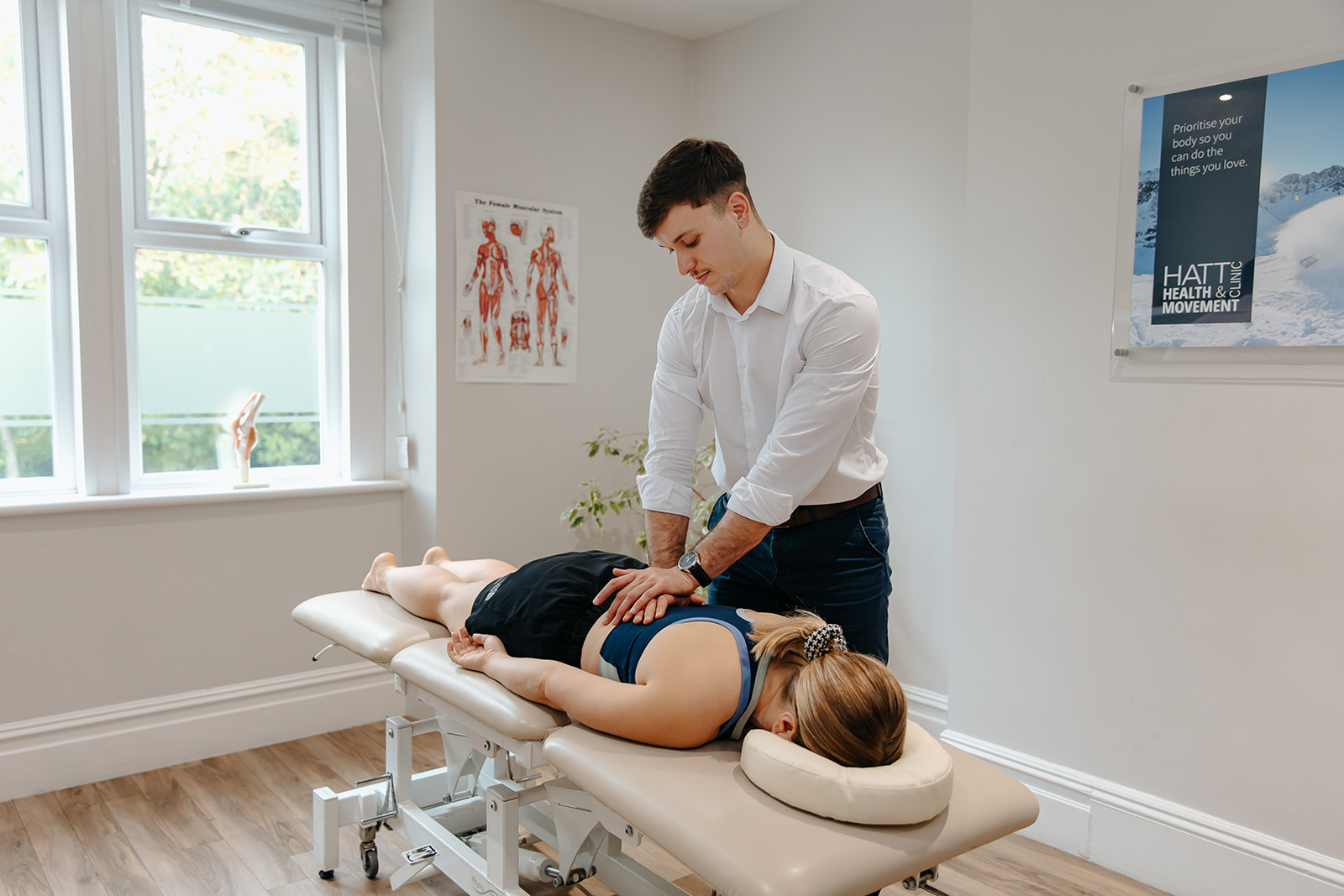Simon Morgan
April 07, 2017
July 12, 2024

There’s nothing worse than dealing with chronic pain or discomfort in your body. We all experience aches and pains in our lives, perhaps down to injury or a long-term condition. If you suffer from pain on a daily basis, manual therapy could be the answer, but what does this involve?
Manual therapy (MT) is a form of physical therapy that uses hands-on techniques to assess and treat soft tissues and joints. There are a wide range of treatment options available depending on the condition and level of pain
The end goal is to decrease pain and leave you feeling better and more mobile. A powerful element of a wider treatment plan, commonly coupled with exercise rehabilitation to get you back to normal activity daily life and sport performance.
Learn more about our manual therapy treatment
MT aims to help:
It’s similar to a regular massage, except that rather than focusing on relaxation, MT intends to treat pain and stiffness in your body.
Through treatment, manual therapy can help to relieve any pain you may have in your muscles or joints, whether due to injury, or long-term condition. Some common conditions that can be treated with manual therapy include:
Therapists use a wide range of treatment techniques for manual therapy, including:
The main difference is in the approach. As we’ve mentioned, manual therapy is a hands-on approach, using methods like massage to manipulate and mobilise joints and tissues. Physiotherapy, on the other hand, is highly focused on diagnosing, educating about your condition and providing early intervention with some hands-on work, and exercise to help recovery of injury or surgery.
Physiotherapists use MT techniques as part of their treatment plan, but they also incorporate other methods to address the underlying cause.
At Hatt’s, we offer a range of services to help you get back on your feet, including physiotherapy and sports therapy. The treatment plan will depend on the issue. With our 100% satisfaction guarantee, you can trust that you are in good hands.
Role of a manual therapist
Their role is to assess and treat joint and soft tissue disorders through hands-on techniques. From your initial session, your therapist will work with you to develop a personalised treatment plan which targets the route of your pain.
During sessions, the therapist will apply firm, but safe pressure to massage, stretch, and manipulate the area affected. They usually do this with their hands, but they may also use tools, such as hot stone massage and rock blades. Learn more about the tools used for manual therapy
Whether you have a specific injury, a long-term condition like arthritis, or are recovering from surgery, MT can help to reduce pain, improve range of motion, and increase mobility.
Just like any type of treatment, there is always a risk, however small. Some potential risks of MT include soreness, bruising, tiredness and in rare cases, injury to tissues or nerves. Each of our therapists is trained to carefully assess your condition and carry out treatments carefully to minimise any potential risks.
Our therapists are trained to use some of the most effective massage tools to ensure you get the most out of your massage. This includes tools such as:
A favourite for many of our patients, hot stones apply heat to targeted areas of the tissue helping them become less tense and more relaxed. As the muscles loosen up, your therapist is able to work deeper within the tissues to achieve optimal results.
Rock Blades are used for instrumental soft tissue mobilisation (IASTM). They can help:
Rock Blades are effective because they provide deeper penetration of adhesions and scar tissue and can be used for joint pain, injury, and lower back or neck pain.
Dry needling is an invasive technique where your therapist inserts a needle into the tense areas of your body to relieve pressure. It’s often used to optimise the effect of manual therapy as it gets deep into the muscles as opposed to working over them.
Our team of Manual Therapists in Devizes, Marlborough are here to alleviate all your aches and pains, getting you back to a pain-free and active lifestyle. Sessions start at £56, which includes 7 core services, all designed to support your healthcare needs.
We adopt a holistic approach, combining manual therapy with other treatments like physical therapy and exercise, to provide you with comprehensive care.
Whether you’re dealing with a sports injury, chronic pain, or recently had surgery, we’re here to help you every step of the way. If you’d like to book in with a member of our team, please call us on 01380 730473 or book online.